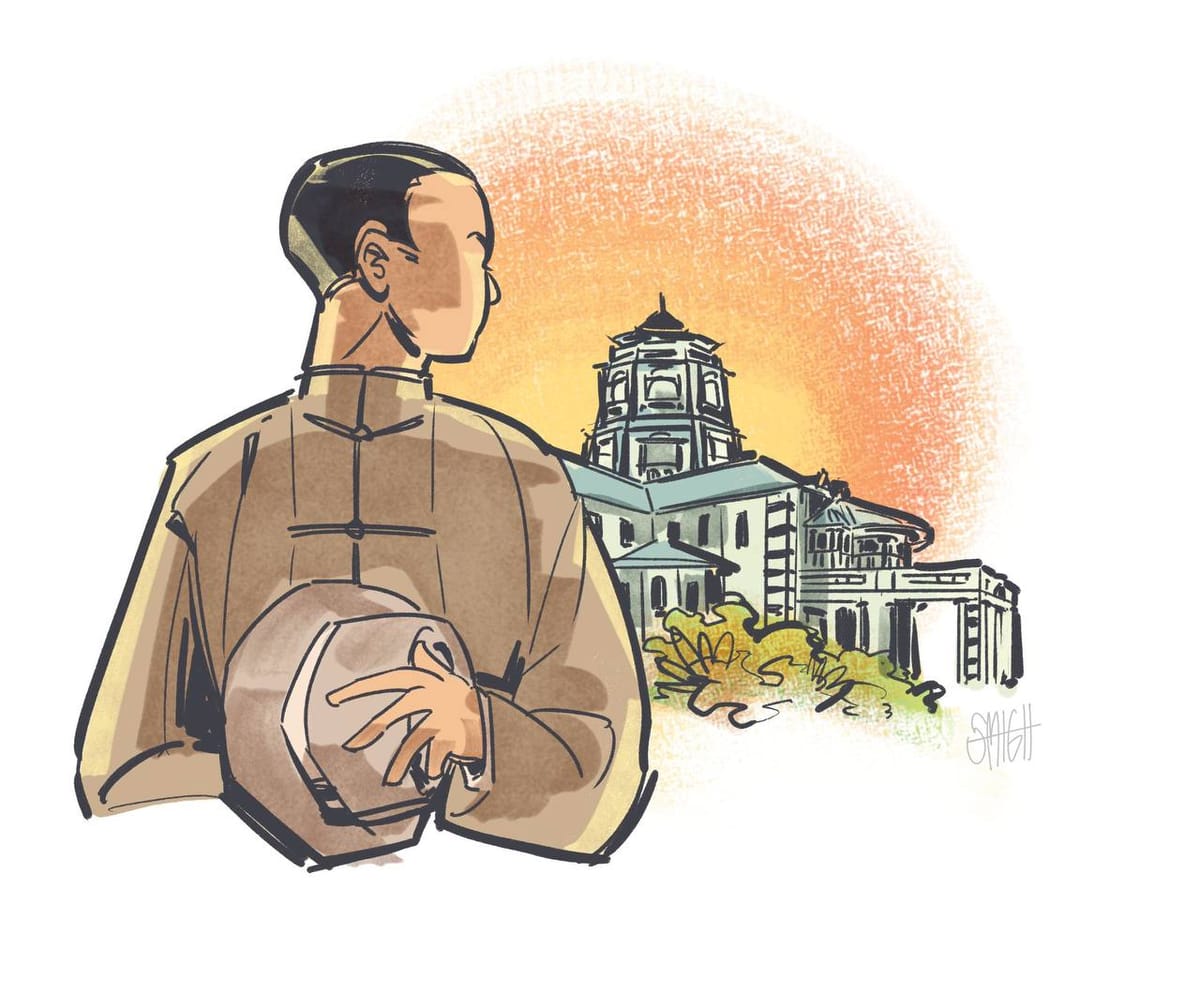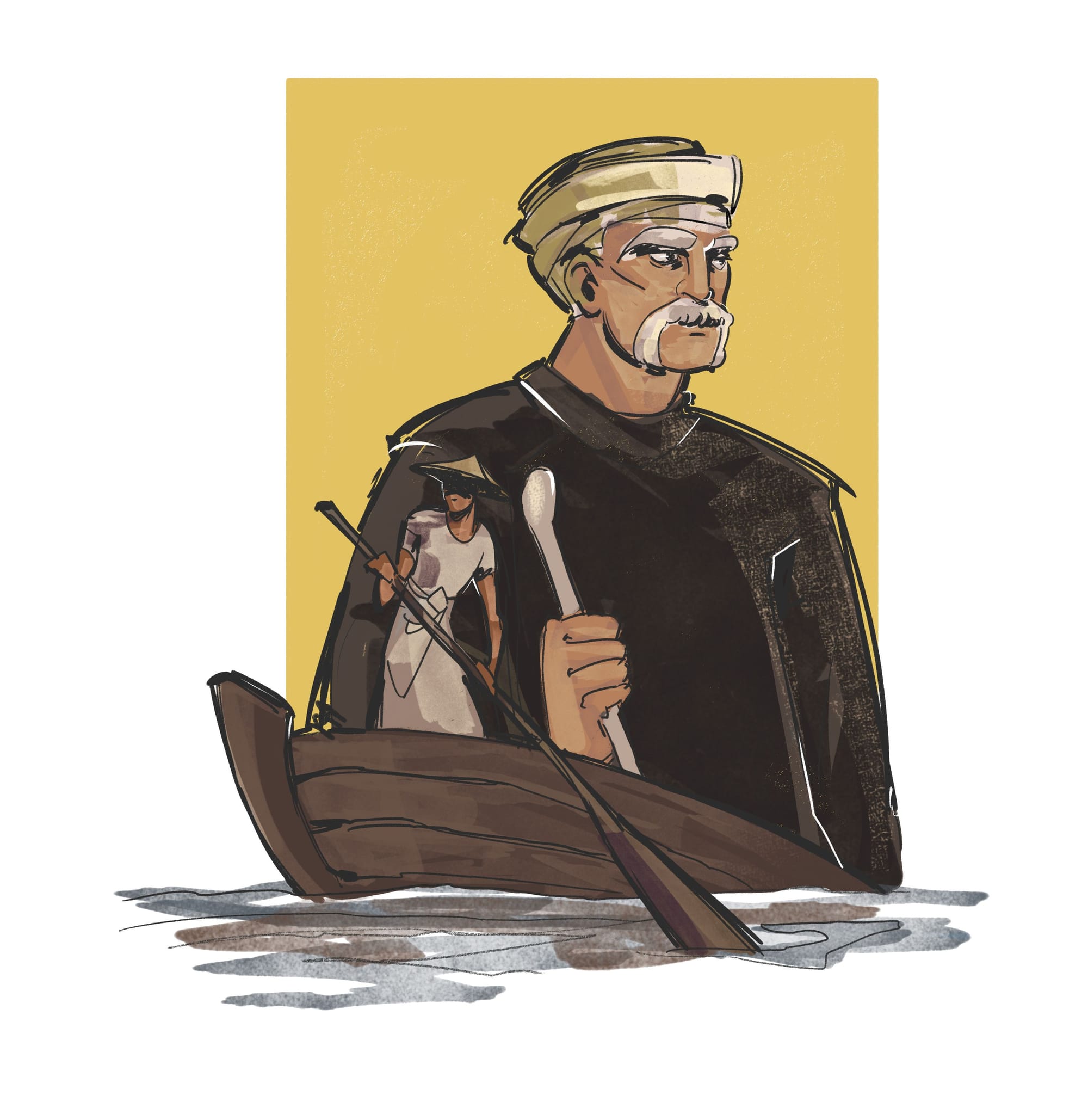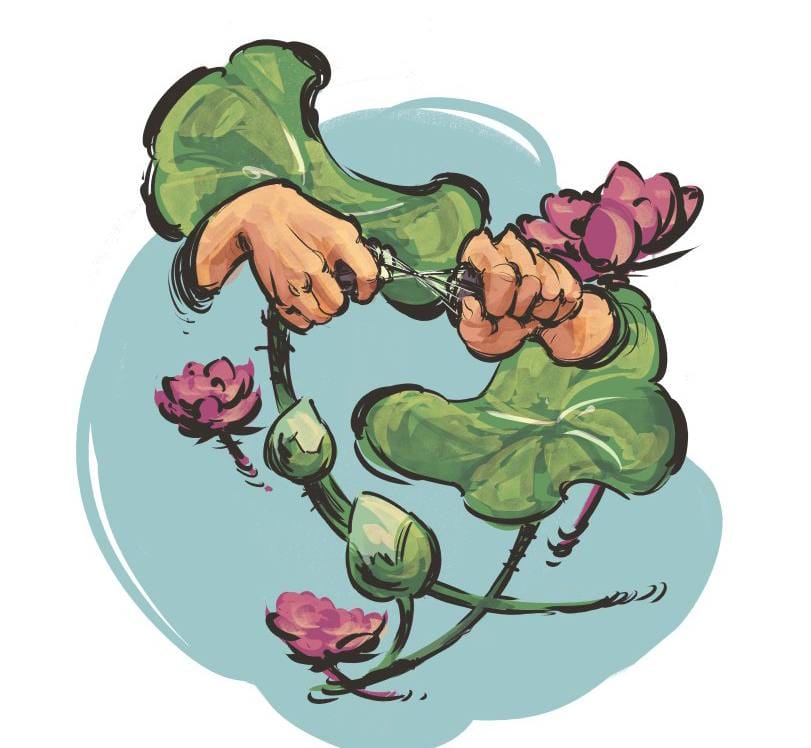
Today's China has become a completely different nation from Myanmar. After more than 40 years of implementing the Open Door Policy, China has emerged as one of the world's leading powers. As China is both Myanmar's neighbor and a significant player in Myanmar's political and economic spheres, it has become an inevitable neighbor for Myanmar.
While there are ongoing debates about China's policies toward Myanmar today, the relationship between Myanmar and China dates back to ancient times. Some notable interactions include the diplomatic mission of Shin Disapramok to China during the Pagan era for peace negotiations, the signing of the Myanmar-China border treaty during General Ne Win's era, and Myanmar's substantial support for China's membership in the United Nations.
These interactions weren't limited to the political sphere but extended into the economic realm as well. Prominent Chinese businessmen have been present in Myanmar since the British colonial period. Figures like Lim Chin Tsong, Chan Ma Phee, Yeo Chu Sam, Lau Hen Kee, Tan Keng Che, Pa Tin Tin, Au Bon Haw, Aung Bon Pa, and U Sap Su were all notable tycoons from Myanmar's historical past. Some of them secretly supported Myanmar's independence movement and were deeply involved in the country's economic development.
Among these outstanding Chinese businessmen, one of the most prominent was the Chinese tycoon Lim Chin Tsong
From Lim Soo Hean to Lim Chin Tsong
Lim Chin Tsong was a Chinese businessman who built a business empire in Myanmar during his era. After the British colonized Lower Burma, Lim Soo Hean, a Chinese man from Amoy in Fujian Province, moved to Myanmar in 1861. He partnered with British Indian nationals to trade in rice. His company was located at 47-49 Shwedagon Pagoda Road. In 1867, Lim Soo Hean had a son: Lim Chin Tsong.
At that time, King Mindon ruled Upper Burma while the British controlled Lower Burma. In British-controlled Lower Burma, business competition was fierce. In particular, it was essential to speak English to effectively communicate with the ruling British. Lim Soo Hean, who was gradually gaining prominence in business, recognized this requirement. With great foresight, Lim Soo Hean sent his son Lim Chin Tsong to study at the prestigious St. Paul's School in Rangoon. Additionally, he entrusted him to Brother Berlin of St. Paul's to learn European customs and manners.
However, Lim Soo Hean passed away just three years after King Thibaw's abdication, never witnessing the business empire his son would build, which would eventually become famous throughout Southeast Asia.
Lim Chin Tsong's Business Empire
After his father's death, Lim Chin Tsong inherited all of his father's businesses. He then established Seang Taik & Company and the Kie De Yuan banking business. Lim Chin Tsong operated various businesses including rubber, textiles, rice, oil, mining, and banking.
Lim Chin Tsong was young, dynamic, and had a keen eye for opportunity. As a result, his businesses flourished. In 1891, he became the sole agent for the prominent Burma Oil Corporation (BOC). Since BOC controlled Myanmar's oil industry, becoming its agent significantly increased Lim Chin Tsong's wealth.
Lim Chin Tsong didn't stop there. He bought an ocean-going vessel and expanded his business empire to Singapore, Penang, Hong Kong, Guangdong, and Amoy. Later, he purchased two more ships with larger cargo capacity from BIBY LINE. These ventures made him the wealthiest overseas Chinese businessman of his time.
The Chin Tsong Palace
As Lim Chin Tsong's wealth grew, he decided to build a mansion befitting his status. In 1917, he constructed a grand house at the corner of Kabar Aye Pagoda Road and University Avenue Road in Rangoon.
The five-story building, while similar to the Fu Xiang Pavilion in Beijing's Summer Palace (Yihe Yuan), actually represented a harmonious blend of Eastern and Western architectural designs. More specifically, it combined Chinese dynastic craftsmanship with Western architectural style in balanced proportions. Construction took about two years and reportedly cost over 2 million Indian rupees.
This mansion was so magnificent that it was called the Chin Tsong Palace. The neighborhood where it stood became commonly known as Chin Tsong Yeiktha (Chin Tsong Residence).
The mansion truly deserved its palace moniker. Lim Chin Tsong visited England to purchase exotic furniture and studied their arrangement methods. He invited Ernest and Dorothy Procter, famous English painters, to Myanmar to create wall murals.
Author Maurice Collis wrote about this in his book "Trials in Burma."
One year after Lim Chin Tsong's business collapse and death, in 1924, the Sawbwas (Shan chiefs) purchased the Chin Tsong Palace and converted it into the Kambawza Palace Hotel. Later, during the Revolutionary Government period, it became the Kambawza Dormitory for university students, and subsequently the Revolutionary Council Consultative Office. Today, it serves as the National Cultural Center.
Public Welfare Activities
Today, there are relatively few positive views about Chinese businessmen in Myanmar. This is a consequence of Chinese businessmen primarily focusing on profit in their operations.
However, during the colonial period under British administration, Chinese tycoons not only pursued business but also gave back to the country. Among those who contributed to the society they thrived in, Chinese tycoon Lim Chin Tsong was at the forefront during his era.
After his business success began around 1905, Lim Chin Tsong established Chinese-English schools with his friends. In 1907, he founded his own Lim Chin Tsong School. Located in downtown Rangoon, this famous school hired teachers from England with generous salaries. The school attracted students not only from within the country but also from Hong Kong and Macau.
For such contributions to national and civic development, the British government awarded him the OBE (Order of British Empire) honor in 1917.
Furthermore, around 1920, Lim Chin Tsong made substantial donations toward the construction of Rangoon University. He was also one of the largest donors for building the Dufferin Women's Hospital.
Due to these public welfare activities, the British government appointed Lim Chin Tsong as a Rangoon Municipal Commissioner. He was also appointed as a member of the Education Board, Victoria Gardens (now Maha Bandula Park) Management Committee, and as a Justice of the Peace.
When rickshaws were first introduced in Myanmar, Chinese men with queues were the first pullers. However, Lim Chin Tsong appealed to them to stop, saying such work brought shame to Chinese nationals. Due to his appeal, Chinese men ceased this occupation. This demonstrates the significant influence Lim Chin Tsong held over the Chinese community.
Lim Chin Tsong's Sunset
However, as surely as there is sunrise, there must be sunset. Mongol Empire ruler Genghis Khan had his sunset, French King Napoleon Bonaparte had his, and even the British who proclaimed their sun would never set eventually faced their end. Lim Chin Tsong's life, too, had its sunset.
In 1921, rice prices rose dramatically. Consequently, the British government banned rice exports from Myanmar to all countries except India. This caused the rice market to collapse. This created significant difficulties for Lim Chin Tsong, who was heavily involved in the rice trade.
Moreover, the British systematically undermined Lim Chin Tsong's business operations as he had grown powerful enough to compete with British business magnates. The worst blow came when BOC withdrew his sole agency rights.
As mentioned earlier, Lim Chin Tsong's business empire rested on two pillars: rice and oil. Now, both these pillars rapidly crumbled. Consequently, his business empire collapsed.
The situation became so dire that Lim Chin Tsong had to sell his valuable Rolls-Royce cars and his bank to the Japanese. His famous Chin Tsong Palace also fell into the hands of a Japanese creditor. His life's sunset was surrounded by debt.
Lim Chin Tsong, who had once shone as brightly as the sun and moon of his time, did not get to experience a beautiful sunset in his final days. As his business deteriorated, his heart condition worsened. In 1923, the Chinese tycoon who had built a business empire reaching across Southeast Asia died in his sleep from heart failure, as ordinary as any poor man.
However, while the man died, Lim Chin Tsong's name lives on in Myanmar as that of an exemplary Chinese businessman. Indeed, the historical records continue to commemorate Lim Chin Tsong as a benevolent Chinese national who gave back to his community.
By Han Thit Eain (Y3A)
Read More:
 Build Myanmar - MediaY3A
Build Myanmar - MediaY3A
 Build Myanmar - MediaY3A
Build Myanmar - MediaY3A
Build Myanmar-Media : Insights | Empowering Myanmar Youth, Culture, and Innovation
Build Myanmar-Media Insights brings you in-depth articles that cover the intersection of Myanmar’s rich culture, youth empowerment, and the latest developments in technology and business.
Sign up for Build Myanmar - Media
Myanmar's leading Media Brand focusing on rebuilding Myanmar. We cover emerging tech, youth development and market insights.
No spam. Unsubscribe anytime.
Sign up now to get the latest insights directly to your mailbox from the Myanmar's No.1 Tech and Business media source.
📅 New content every week, featuring stories that connect Myanmar’s heritage with its future.
📰 Explore more:
- Website: https://www.buildmyanmarmedia.com/
- Facebook: https://www.facebook.com/buildmyanmar
- YouTube: https://youtube.com/@buildmyanmarmedia
- Telegram: https://t.me/+6_0G6CLwrwMwZTIx
- Inquiry: info@buildmyanmar.org
#BuildMyanmarNews #DailyNewsMyanmar #MyanmarUpdates #MyanmarNews #BuildMyanmarMedia #Myanmarliterature #myanmararticle #Updates #Insights #Media
